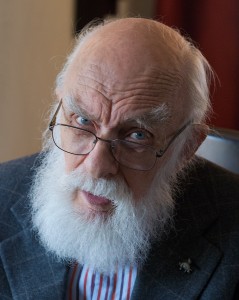 “Why do you want to go to this conference?” is a question that a boss has probably asked you at some point. The real question is, of course, Is it worth the money and time invested in having you attend? It can be a hard question to answer. Especially when the event in question has no or few predetermined sessions, like the peer conferences I design and facilitate. So how can we measure and improve event ROI?
“Why do you want to go to this conference?” is a question that a boss has probably asked you at some point. The real question is, of course, Is it worth the money and time invested in having you attend? It can be a hard question to answer. Especially when the event in question has no or few predetermined sessions, like the peer conferences I design and facilitate. So how can we measure and improve event ROI?
Improving Event ROI
Probably the most exhaustive methodology for planning and evaluating event ROI has been developed by Jack Phillips and Elling Hamso. It’s long and comprehensive, and here’s a summary of it.
According to this methodology, one of the components involved in evaluating Event ROI is the degree of Relationship Learning, which Elling defines as follows:
“Relationship learning refers to the building of affinity between people, getting to know others, trust and liking. All forms of peer learning benefit from the strength of personal relationships, it is the foundation for subsequent information, skills and attitude learning in the peer relationship. Relationship learning may be measured in much the same manner as other forms of learning. At the most detailed level, individual relationships of trust and liking, for example, may be scored on a scale from very low to very high, or more general reports of relationship learning may be collected.”
How peer conferences improve event ROI
Well, this is exactly the kind of learning experience at which peer conference designs like Conferences That Work excel! Here’s how Howard Givner described a peer conference he attended:
“…one of the most innovative and eye-opening professional experiences I’ve had. Aside from coming back with lots of new tips and ideas, I easily established triple the number of new contacts, and formed stronger relationships with them, than at any other conference I’ve been to.”
—Howard Givner article: The Un-Conference: Participant-Driven Agenda + Mashup Networking = Relationship Building on Steroids
Conversations, and subsequent relationships, are very important. Doc Searls, co-author of the Cluetrain Manifesto, wrote a great article about their pivotal role: Building a Relationship Economy. Well-designed peer conferences provide an environment that encourages and supports a rich abundance of the initial components of the following sequence:
Conversations => Relationships => Value
“Value” here means the kind of business worth your boss is thinking about. More prospects, new sales, increased customer satisfaction, etc. All the things that translate into funding for your paycheck, profit for your company, and a happy boss.
So, when your boss next asks you The Question about the participant-driven conference you want to attend, take a deep breath. Tell them you expect to make many more business relationships at this event than you would at a conventional conference. Relationships that will turn into solid business value for your organization. Communicate exactly why you want to go. Explain that participant-driven conferences improve event ROI because they are much better than traditional meetings at building sessions around the content that attendees actually want. Good luck!
Photo attribution: Flickr user andyi
